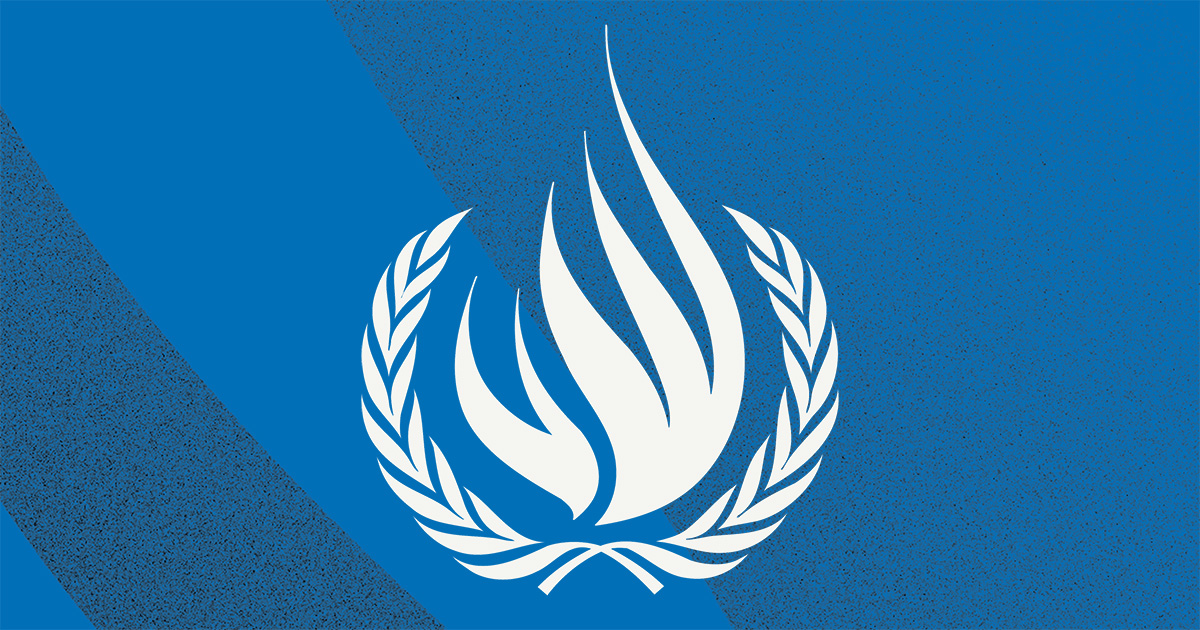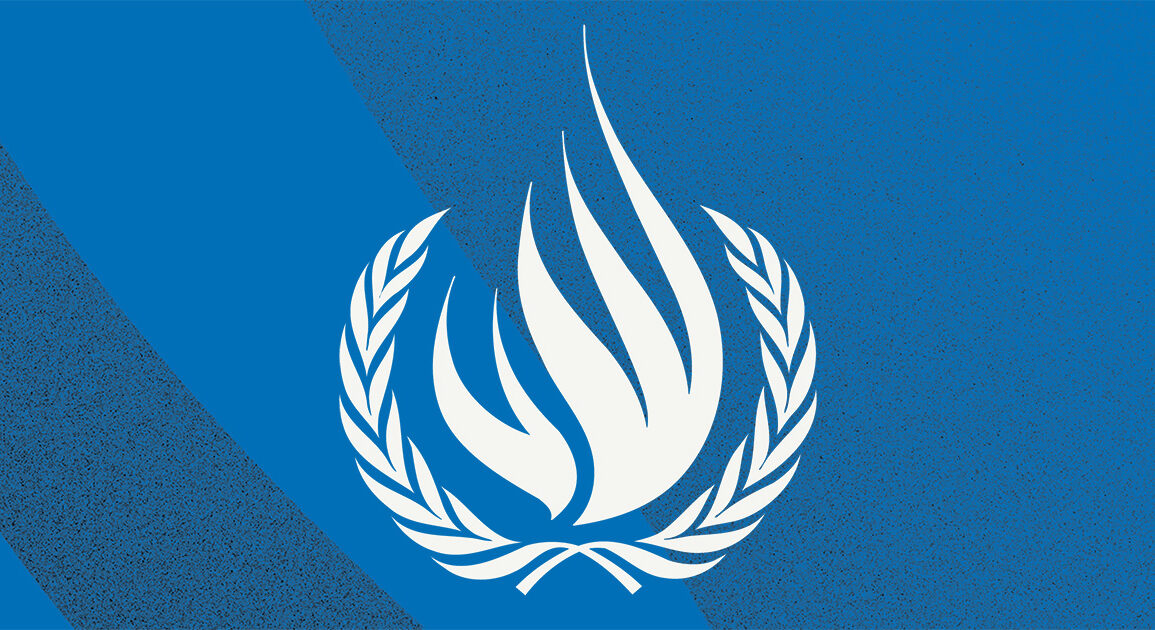
Mr. Vice-President,
Excellencies,
Distinguished delegates,
Human rights in Afghanistan are in a state of collapse, acutely affecting the lives of millions of women, men, girls and boys.
Violations of human rights in the country are not new: decades of armed conflict mean that Afghanistan has known violence and injustice for much of its recent history.
But the dynamic imposed by the Taliban since they took power two years ago constitutes a systematic assault on the rights and freedoms of the population, which particularly targets women and girls and excludes them from most aspects of public and daily life.
The country has also plunged into a grave humanitarian and economic crisis, with two thirds of the population now in need of assistance.
The current drought also is severely affecting livelihoods and communities.
The report before the Council today shows the stripping back of institutional protections of human rights at all levels in Afghanistan.
Afghanistan’s legal and institutional frameworks have undergone profound changes since August 2021, and I remind the de facto authorities that they continue to be bound by Afghanistan’s international human rights obligations.
Mr. Vice-President,
The shocking level of oppression of Afghan women and girls is immeasurably cruel. Afghanistan has set a devastating precedent as the only country in the world where women and girls are denied access to secondary and higher education.
Restrictions are becoming increasingly severe, quelling women and girls’ fundamental freedoms, effectively confining them to the four walls of their homes – to invisibility.
This Council is by now familiar with the long list of misogynistic restrictions and edicts. An ongoing ban on secondary and higher education. A requirement to wear the hijab in public places, with punishments extending to male relatives if they do not comply. No parks, gyms, or public baths. No beauty salons. No travelling more than 78km without a mahram, or male chaperone. No working for domestic or international NGOs, and now, the United Nations. This last ban flies in the face of the UN Charter and its fundamental principle of equality, compromising both human rights and the humanitarian response.
Women and girls deemed non-compliant with this litany of rules face arbitrary arrest and detention, harassment and even physical violence, as do their male relatives.
In recent weeks, the de facto authorities prevented a group of female students from travelling to Dubai for their studies because they were not all accompanied by their male chaperones.
What can possibly come next?
Any prospect of a stable, prosperous future for Afghanistan rests on the participation of half of the population. Denying women and girls’ rights to participate in daily and public life not only denies them their human rights, it denies Afghanistan the benefit of the contributions they have to offer.
Mr. Vice-President,
Over the past two years, there has been a systematic erosion of the laws and institutions that once provided some protection for human rights. The Constitution has been suspended, and laws are now made by edicts rather than through consultative processes.
Laws that once provided a framework for the protection of women from violence, or an enabling environment for media, have been suspended.
The Afghanistan Independent Human Rights Commission, which once played a vital role, is no more.
Corporal punishments and public executions have resumed and there are ongoing reports of extrajudicial killings, torture and ill-treatment as well as arbitrary arrests and detentions. Despite repeated statements by the de facto authorities regarding the general amnesty, we continue to document human rights violations against individuals affiliated with the former government and its security forces.
The rights of accused people are routinely violated due to a failure to uphold procedural safeguards and a lack of capacity within the criminal justice system. While the de facto authorities have established some new bodies with a mandate for visiting prisons, oversight of judicial processes and receiving complaints, we have yet to see how they will work.
Compounding all of this is a deeply troubling lack of accountability for perpetrators of human rights violations.
The severe curtailment of the media in Afghanistan represents a targeted attack on freedom of expression and opinion.
Today’s media environment is one where journalists are forbidden to publish content deemed contrary to their religious interpretation. Where women journalists must cover their faces while broadcasting. And where the screening of films or soap operas that feature women actors are banned, as are foreign films deemed contrary to Afghan, or their interpretation of, Islamic values.
Numerous media outlets have been forced to halt operations. Civil society faces similar constraints and as a result has been largely stifled.
The de facto authorities have also employed arbitrary arrests and detentions and at times excessive force as a tool for silencing dissent and free speech.
Mr. Vice-President,
To the extent that there is space to do so, the United Nations Assistance Mission in Afghanistan, with its human rights component, will continue to raise individual cases and urge compliance with international law by the de facto authorities. My colleagues will also continue to monitor and report on human rights developments – including through the six reports issued to date this year – and we will keep the Council informed.
In the absence of other human rights institutions in the country, and of many diplomatic missions, this human rights presence on the ground has never been more critical. I would like to pay special tribute to Afghan female colleagues who are working under these unimaginable constraints.
The international community cannot turn its back on the people of Afghanistan.
This is a human rights crisis of the first order.
I encourage States proactively to help address the challenges facing the Afghan economy. This will involve concrete efforts to restore the financial systems to genuinely benefit the Afghan people, including women and girls, and to ensure that sanctions do not impact on humanitarian needs.
I especially urge States with influence over the de facto authorities to help them reverse this trajectory, which is fatal not only for human rights, but for the future development and security of the country.
I also encourage States to support the work of my Office on the ground to bring some degree of protection and witness to the people of Afghanistan at this critical time.
I exhort the de facto authorities fundamentally to change course and bring Afghanistan back to the international order with full respect for its international human rights obligations.
This will require concerted action at all levels to address the current vacuum of institutional human rights protections and to establish an inclusive and responsive system of governance built on human rights.
Thank you.
This post was originally published on this site be sure to check out more of their content.









